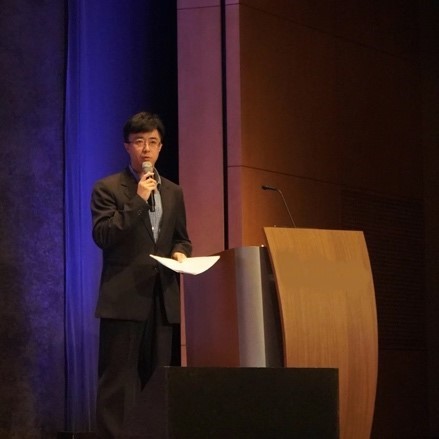IEEE (Institute of Electrical and Electronics Engineers), the world largest non-profit professional technical society, released the list of 2022 IEEE Fellows.A total of 265 scholars from around the world are recipients of the award, of which 31 are Chinese scholars and 28 are scholars from mainland China. Professor Xiang Cheng from the School of Electronics (ELE), Peking University was elected the 2022 IEEE Fellow for his contributions to vehicular communication channel modeling and system design.

Professor Xiang Cheng
IEEE is the world largest non-profit professional technical society, established on January 1st of 1963. It has over 400,000 IEEE members in over 160 countries and regions, and 39 technical societies. It leads in the latest developments in signal and information processing, power, electronics, computers, communications, control, remote sensing, biomedical, intelligent transportation, and space technologies.
IEEE Fellow is the highest honorgrantedby IEEE to its members, and is recognized as an authoritative honor and important professional achievement in the academic and technological circles. IEEE stipulates that the number of elected members shall not exceed 0.1% of the total number of IEEE members in that year. The fellows must have made significant contributions to the advancement or application of engineering science and technology. IEEE Fellow is recognized in the academic and scientific community as a prestigious honor and a significant professional achievement
Prof. Cheng has been working on data-driven smart networks and networked intelligence research, focusing on smart transportation and logistics scenarios. His research includes wireless communication channel modeling and applications, 5G/B5G smart vehicle networking and multi-intelligent body collaboration theory and technology, etc. He has achieved a series of internationally influential results. Prof. Xiang Cheng's scientific research work on the one hand is oriented towards the system design of more stable and efficient 5G/B5G Telematics, based on artificial intelligence technology, considering the collaborative integration of communication and perception, expanding novel ideas for 5G/B5G Telematics channel modeling and system design, and opening new horizons for the system design and technology development of 5G/B5G Telematics. On the other hand, oriented to the architecture construction of networked intelligent vehicle system, for the vertical application of unmanned intelligent vehicle, the integration of vehicle networking technology and unmanned driving technology, the research of networked collaborative localization, networked collaborative perception/cognition, networked collaborative optimization, etc., will promote the progress and development of networked intelligent unmanned system. He has published 7 monographs in English and 1 in Chinese, 126 IEEE journal papers and 13 Chinese journal papers, 2 international patents and 15 Chinese patents, led the establishment of 3 domestic standards (including 1 industry standard and 2 group standards), and participated in the development of 10 3GPP international standards and 2 domestic industry standards. The results of his work have been adopted by 3GPP international and domestic standards, and have been validated and widely used in 4G LTE-V2X commercial networks and 5G NR-V2X pilot network systems.
Currently, Prof. Cheng Xiang is the recipient of the National Natural Science Foundation of China Distinguished Young Scientist Program, the Young Scientist Award of the Chinese Society of Communication, the First and Second Prize of Natural Science of the Ministry of Education, and the First Prize of Technical Invention of the Chinese Society of Communication; he is the first "Outstanding Young Scholar of China Engineering Frontier" of the Chinese Academy of Engineering, the Distinguished Young Research Scholar of IEEE Communications Society for Asia Pacific, the Distinguished Lecturer of IEEE, the Director of the "Zhongguancun Open Laboratory of Multi-Intelligent Body Collaboration Theory and Technology" and the Director of the "Networked Intelligent Service System Professional Committee" of the Chinese Society of Automation. He is the Editor-in-Chief of IET Communications. He is also a member of the journal's Editorial Board in IEEE Transactions on Wireless Communications, IEEE Transactions on Intelligent Transportation on Systems, IEEE Wireless Communications Letters, and Journal of Communications and Networking.




